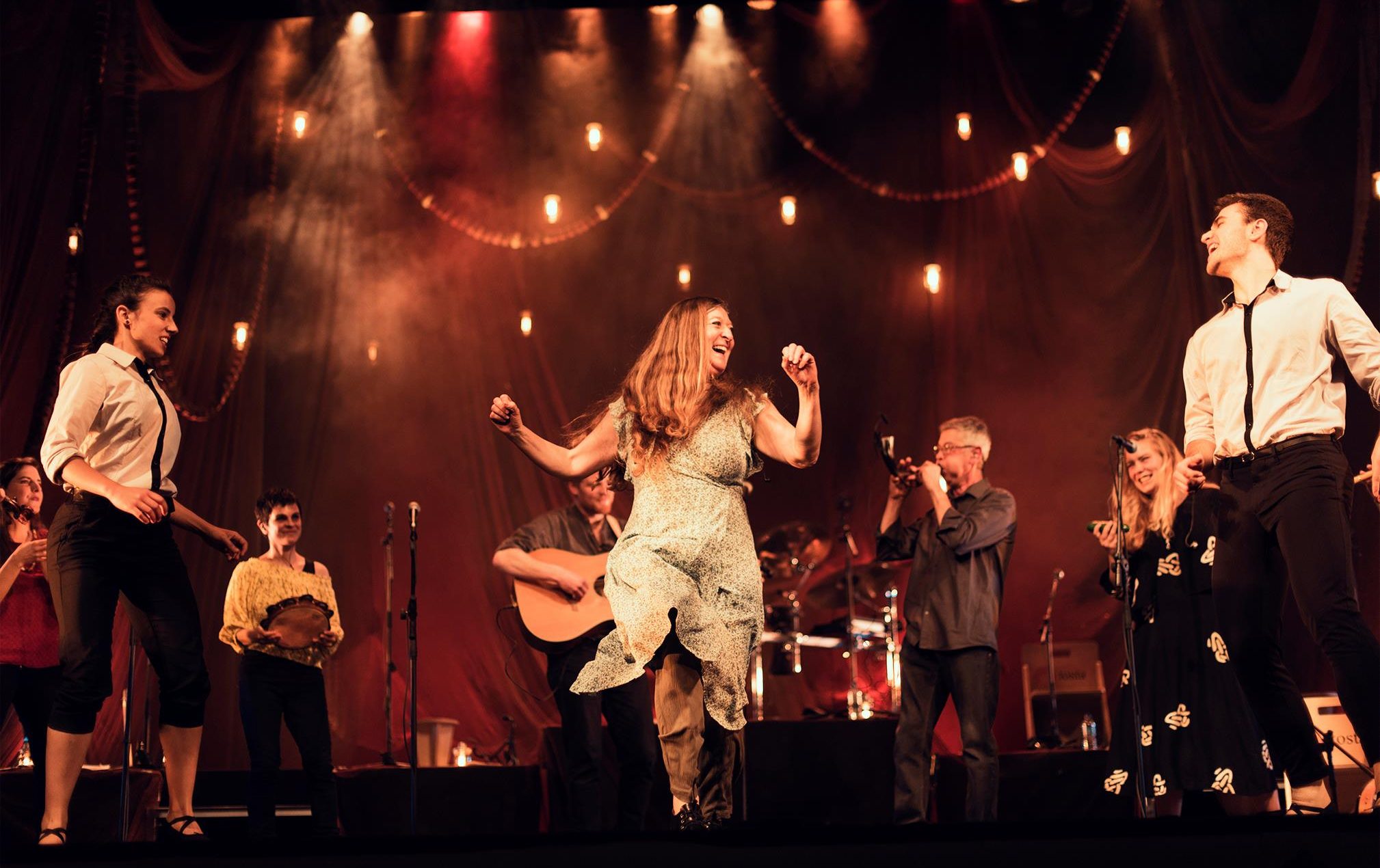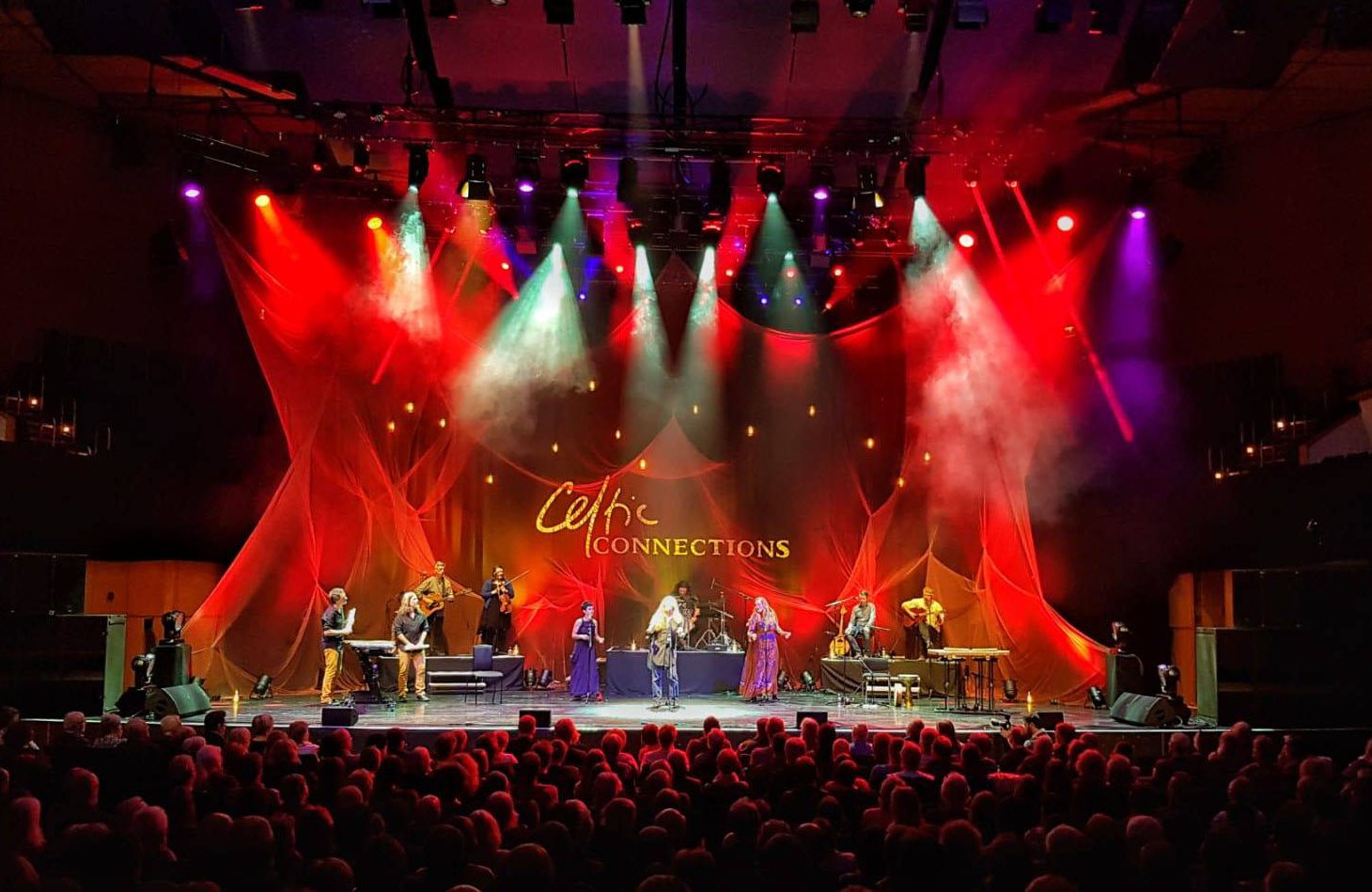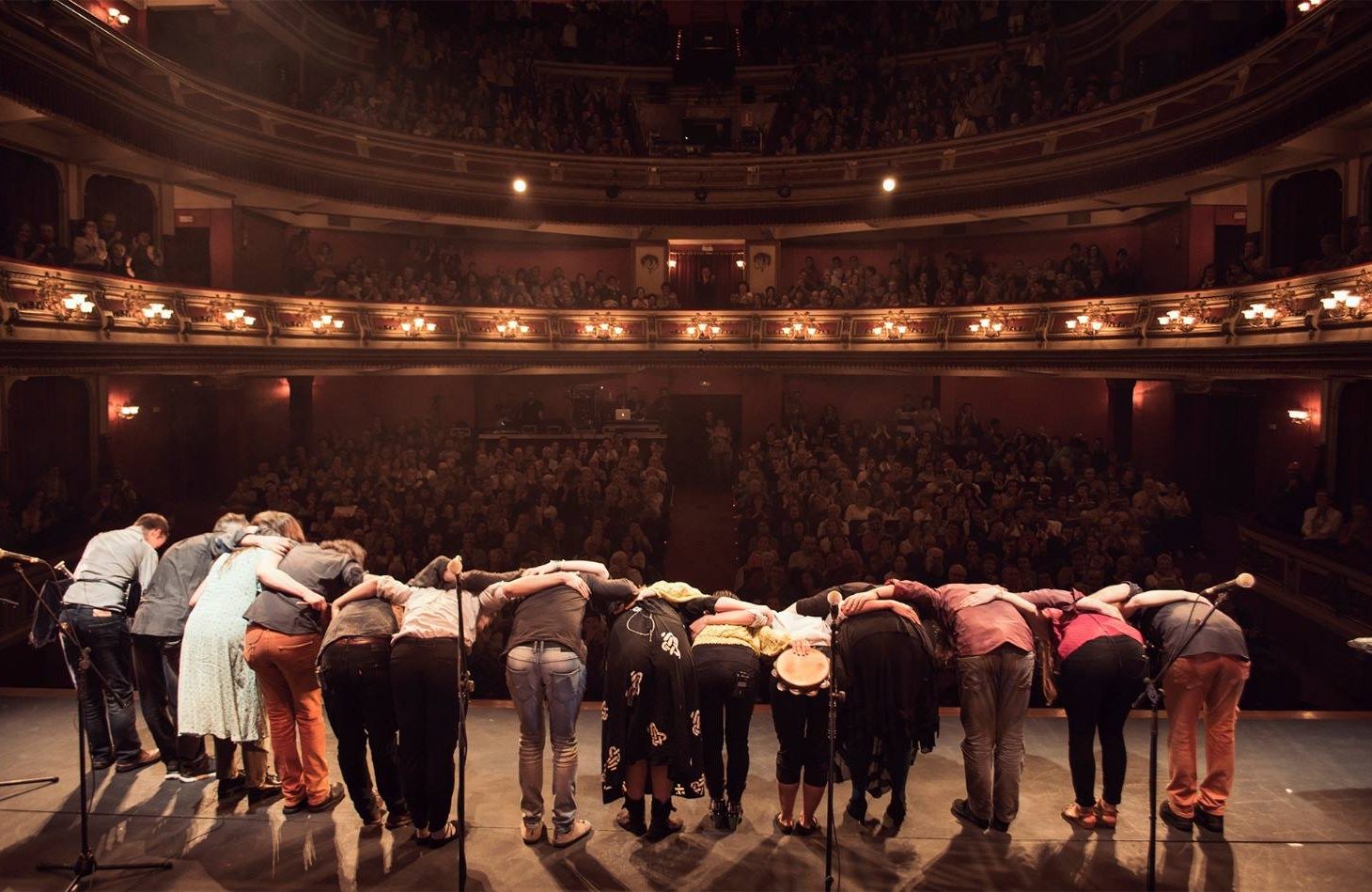

Back in 2016, Golden Tree Productions was part of an artistic collaboration with Tosta, a headline project of Donostia / San Sebastian European Capital of Culture.
It was a partnership of seven of Europe’s small-language nations (Cornwall, Friesland, Wales, Scotland, the Basque Country, Galicia and Ireland), all situated on the Atlantic coastline with strong maritime traditions. The ‘Tosta: Cultural Cargo’ team worked to celebrate linguistic and cultural diversity, promote exchanges between these communities and spread ‘peace through culture’.
At the heart of this project is the Tosta Banda – a travelling ‘diversity orchestra’ made up of musicians from each of the communities. These musicians offered a selection of songs in their minority languages and tunes which were representative of their cultures. They travelled to festivals in each of the small-language nations, and appeared at the Falmouth International Sea Shanty Festival in 2016.
Ma kanow vy war hern, gen kok ha roos
Kemerys yn Pensans, Karrek Loos yn Koos
My verses are about pilchards with boat and net
Taken in Penzance, St Michael’s Mount
— Words: John Boson, 1710
Interview with Bec Applebee
Musician and actor, Bec Applebee, was chosen to represent Cornwall in the Tosta Banda as the Cornish vocalist and percussionist. She has worked for the likes of Kneehigh Theatre and Wildworks, and is a founding member of Dalla – a band internationally acclaimed and at the forefront of traditional Cornish music.
Go Cornish had the pleasure of meeting up with Bec, only a few weeks after Tosta Banda performed at the Celtic Connections Festival 2019 in Glasgow. We spoke to her about her involvement in the band, and what learning the Cornish language means to her.
The term ‘tosta’ means ‘the bench of a boat’ in many minority languages on the European Atlantic coast. Why did the band choose this as a name?
The idea is that minority language speakers come together on the bench of a common musical boat, to travel to each of our seven regions with a message that celebrates diversity at a moment of crisis in global identity. The band is a way to bring people who feel ‘other’ together, and look to what we have in common.
You’ve just got back from performing with Tosta Banda at the Celtic Connections Festival in Glasgow. How was it?
Oh, it was fantastic! It’s always been one of my dreams to sing and play in a multinational band of this quality. I’m not as fluent in Cornish as many other Cornish people and sometimes feel self conscious – all of the other band members have spoken in minority languages since childhood. However, I’m proud to be there representing the people of Cornwall and singing in the language of my home. The Celtic Connections Festival audience got a real sense of what it is to share: by uniting our minority languages through music, a bit of magic was created on stage.


You mentioned that Cornish isn’t your first language. Why did you decide to learn?
As a child I remember learning the Cornish alphabet and some Cornish songs with my teacher, Mr Tuck, at Illogan Primary School, which was rare. When I went away to college, I felt a real yearning to come back to Cornwall and find my roots. Later, when I travelled with work, I experienced other people who were very connected and proud to share their cultures and traditions. I wanted to share mine.
The reality is, most people in Cornwall are speaking Cornish whether they know it or not – with place names like ‘Perranporth’ and ‘Carn Brea’. Working with Golden Tree Productions and playing with the band Dalla has helped me to share the rich heritage we have here in Cornwall, which sometimes slips through people’s fingers. Singing in the language has made me feel part of Cornish culture and place.
What’s next for the band?
You’ll have to watch this space! We’re in the process of applying to various venues and festivals, so hopefully the Tosta Banda will reunite once again to play music and celebrate diversity.
A live recording of the Tosta Band at Atlantikaldia Festival, Errenteria is now available to buy.
Share